detail profile b c3 a9la bart c3 b3k

Béla Bartók
Béla Viktor János Bartók
atau dikenal sebagai
Info Pribadi
Peran Yang Di Mainkan Béla Bartók
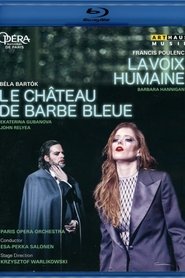 Running through Bartks disenchanted tale whose...
Running through Bartks disenchanted tale whose...Poulenc's The Human Voice / Bartók's Bluebeard's Castle 2018
Running through Bartók’s disenchanted tale, whose haunting music was initially condemned as unplayable, and the expression of despair in Poulenc’s monologue, the director Krzysztof Warlikowski perceives a shared dramatic thread, a shared feminine consciousness and a shared sense of imprisonment and suffocation: for the woman who penetrates the confines of Bluebeard’s castle and Elle, the woman who clings to a telephone conversation with a man as the only thing worth living for, are condemned to share the same fate. And this man she speaks to, does he really exist? Unless the director has interpreted Cocteau’s words to the letter and the telephone has become a “terrifying weapon that leaves no trace, makes no noise”…
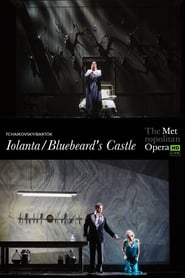 Valery Gergiev conducts Mariusz Trelinskis thrilling...
Valery Gergiev conducts Mariusz Trelinskis thrilling...Tchaikovsky: Iolanta / Bartók: Bluebeard's Castle 2015
Valery Gergiev conducts Mariusz Trelinski’s thrilling new production of these rarely heard one-act operas. Anna Netrebko stars as the blind princess of the title in Tchaikovsky’s lyrical work, opposite Piotr Beczala as Vaudémont, the man who wins her love—and wakes her desire to be able to see. Nadja Michael and Mikhail Petrenko are Judith and Bluebeard in Bartók’s gripping psychological thriller about a woman discovering her new husband’s murderous past.
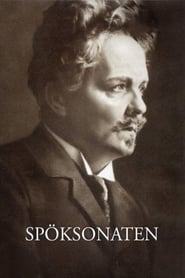 The Ghost Sonata relates the adventures...
The Ghost Sonata relates the adventures...The Ghost Sonata 2007
The Ghost Sonata relates the adventures of a young student, who idealizes the lives of the inhabitants of a stylish apartment building in Stockholm. He makes the acquaintance of the mysterious Jacob Hummel, who helps him to find his way into the apartment, only to find that it is a nest of betrayal and sickness. The world, the student learns, is hell and human beings must suffer to achieve salvation.
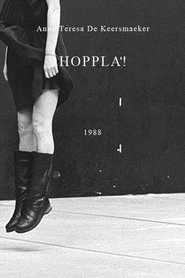 In Hoppla two choreographies by Anne...
In Hoppla two choreographies by Anne...Hoppla! 1988
In Hoppla!, two choreographies by Anne Teresa De Keersmaeker are brought together and performed to the music of the Hungarian composer Béla Bartók: Mikrokosmos, seven short works for two pianos, and Quatuor no. 4, Bartók’s fourth string quartet. The reading room of the Ghent University library, designed by the renowned architect Henry Van de Velde, serves as location.
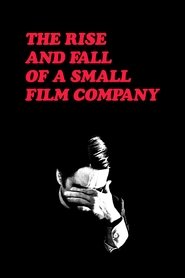 Director Gaspard Bazin is working on...
Director Gaspard Bazin is working on...Rise and Fall of a Small Film Company 1986
Director Gaspard Bazin is working on a new feature film. For now, he's still looking at the fundraising and casting stage of the process. He calls upon Jean Almereyda, a once-fashionable producer who is now going through a bad patch, finding it increasingly difficult to raise the capital he needs for his ventures. His wife Eurydice dreams of being a movie star. A perverse game between the two men ensues, with Almereyda wanting to please his wife, but reluctant to demand a role for Eurydice because of Bazin's reputation as an incorrigible seducer.
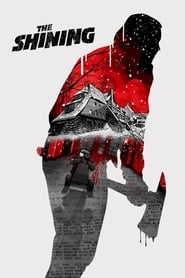 Jack Torrance accepts a caretaker job...
Jack Torrance accepts a caretaker job...The Shining 1980
Jack Torrance accepts a caretaker job at the Overlook Hotel, where he, along with his wife Wendy and their son Danny, must live isolated from the rest of the world for the winter. But they aren't prepared for the madness that lurks within.
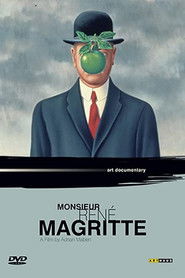 Documentary about the Belgian surrealist artist...
Documentary about the Belgian surrealist artist...Monsieur René Magritte 1978
Documentary about the Belgian surrealist artist who died in 1967.
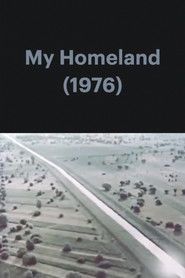 Perhaps this is Robert Vas most...
Perhaps this is Robert Vas most...My Homeland 1976
Perhaps this is Robert Vas' most personal film; a portrait of his country - Hungary - as seen through the eyes of an exile. Robert Vas escaped from his homeland after the brutal crushing of the 1956 Hungarian Uprising by the Russians and he was never able to return. He portrays his country through the writings of Hungary's national poets and illustrates the film with images of the Revolution and of the society it would become in the years immediately following 1956. The film was transmitted on the 20th anniversary of the crushing of the uprising.
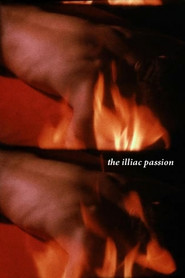 Prometheus on an Odyssean journey crosses...
Prometheus on an Odyssean journey crosses...The Illiac Passion 1967
Prometheus, on an Odyssean journey, crosses the Brooklyn Bridge in search of the characters of his imagination. After meeting the Muse, he proceeds to the "forest." There, under an apple tree, he communes with his selves, represented by celebrated personages from the New York "underground scene" who appear as modern correlatives to the figures of Greek mythology. The filmmaker, who narrates the situations with a translation of Aeschylus' Prometheus Bound, finds the personalities of his characters to have a timeless universality.
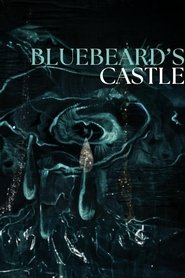 Based on the Bla Bartk opera...
Based on the Bla Bartk opera...Bluebeard's Castle 1963
Based on the Béla Bartók opera, Duke Bluebeard reluctantly and gradually uncovers the secrets of his psyche to his fourth wife, Judit, opening the seven doors of his castle to ultimately reveal his still living previous wives, among whom Judit must take her place.
 Directed by Pierre Clment and DjamelEddine...
Directed by Pierre Clment and DjamelEddine...Algerian Refugees 1958
Directed by Pierre Clément and Djamel-Eddine Chanderli, produced by the FLN Information Service in 1958, this film is a rare document. Pierre Clément is considered one of the founders of Algerian cinema. In this film he shows images of Algerian refugee camps in Tunisia and their living conditions. A restored DVD version released in 2016, from the 35 mm original donated by Pierre Clément to the Contemporary International Documentation Library (BDIC).
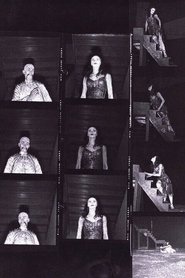 A modernized version of the famous...
A modernized version of the famous...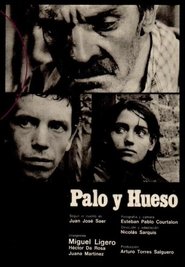 An old man pays a woman...
An old man pays a woman...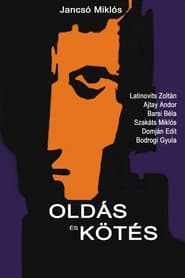 A young doctor undergoes a spiritual...
A young doctor undergoes a spiritual...